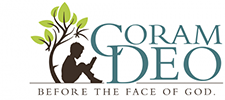Grammar, Logic, and Rhetoric Stages
The “trivium” of classical education, are the Grammar, Logic, and Rhetoric stages.
The “Grammar” stage: this does not refer just to English grammar. Rather, this is the  stage of learning in which the building blocks for all other learning are laid, just as grammar is the foundation for language. In the elementary school years the mind is ready to absorb information. Children at this age actually find memorization fun. So during this period, education involves not self-expression and self-discovery, but rather the learning of facts. Rules of phonics and spelling, rules of grammar, poems, the vocabulary of foreign languages, the stories of history and literature, descriptions of plants and animals, the facts of mathematics — the list goes on. This information makes up the “grammar,” or the basic building blocks, for the second stage of education.
stage of learning in which the building blocks for all other learning are laid, just as grammar is the foundation for language. In the elementary school years the mind is ready to absorb information. Children at this age actually find memorization fun. So during this period, education involves not self-expression and self-discovery, but rather the learning of facts. Rules of phonics and spelling, rules of grammar, poems, the vocabulary of foreign languages, the stories of history and literature, descriptions of plants and animals, the facts of mathematics — the list goes on. This information makes up the “grammar,” or the basic building blocks, for the second stage of education.
The “Logic” stage: The “Logic” stage is the stage of education that focuses on the art of correct reasoning, or the training of “how to think.” In classical education, this logic stage (or dialectic stage) is not limited to the junior high or middle school aged student, but is also for those who developmentally are beginning to question ideas and authority, or may not have much classwork in the subject. The goal is to train the student’s mind not only to grasp information, but to find the analytical connections between seemingly different facts/ideas, to find out why something is true, false, or unknown.
 The “Rhetoric” stage: Generally for high school students (often grades 9 – 12 or 10-12), the “Rhetoric” stage is for those students who, by this point in their education, have the concepts and logic critically to analyze their own work and persuade others. The student now learns to apply what he or she has learned, and to articulate answers to important questions in his or her own words, to try to persuade others with these facts, and to defend ideas against rebuttal. The student has learned to reason correctly in the Logic stage so that those skills of reasoning can now be applied.
The “Rhetoric” stage: Generally for high school students (often grades 9 – 12 or 10-12), the “Rhetoric” stage is for those students who, by this point in their education, have the concepts and logic critically to analyze their own work and persuade others. The student now learns to apply what he or she has learned, and to articulate answers to important questions in his or her own words, to try to persuade others with these facts, and to defend ideas against rebuttal. The student has learned to reason correctly in the Logic stage so that those skills of reasoning can now be applied.
